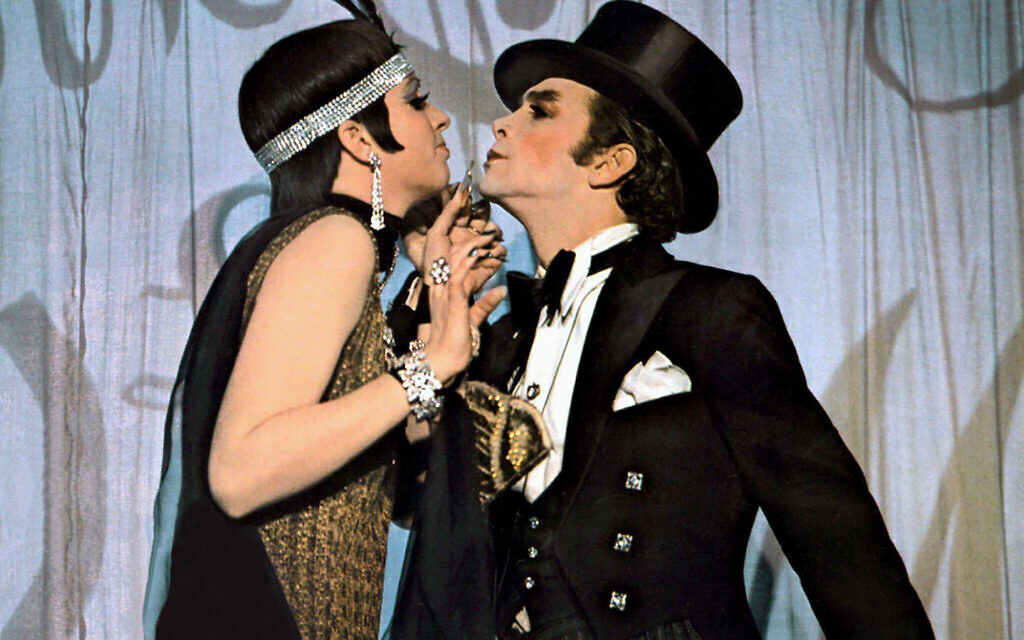Cabaret the movie is at a cinema near you
To celebrate the Golden anniversary they have restored Fosse's film
To mark its 50th anniversary, a glorious new restoration of the film Cabaret has just been released in cinemas this week. Now you can see Bob Fosse’s iconic stylish musical portrait of pre-war Berlin at a local big screen and enjoy the magnificent score as it was written by Fred Ebb and Jewish John Kander. The April issue of Life Magazine was an homage to the film starring Liza Minnelli and this is your chance to revisit the interviews with Joel Grey, originator of the iconic master of ceremonies.
On the opening night of Cabaret at The Playhouse, Eddie Redmayne’s dressing room was strewn with cards and flowers. But there was one elaborate bouquet that surprised him and made the most impact. It was from Joel Grey. The gesture wasn’t lost on Eddie, who was about to make his debut in the role of The Emcee, which Joel Grey originated on stage and for which he then won an Oscar in Bob Fosse’s film.
Get The Jewish News Daily Edition by email and never miss our top stories Free Sign Up
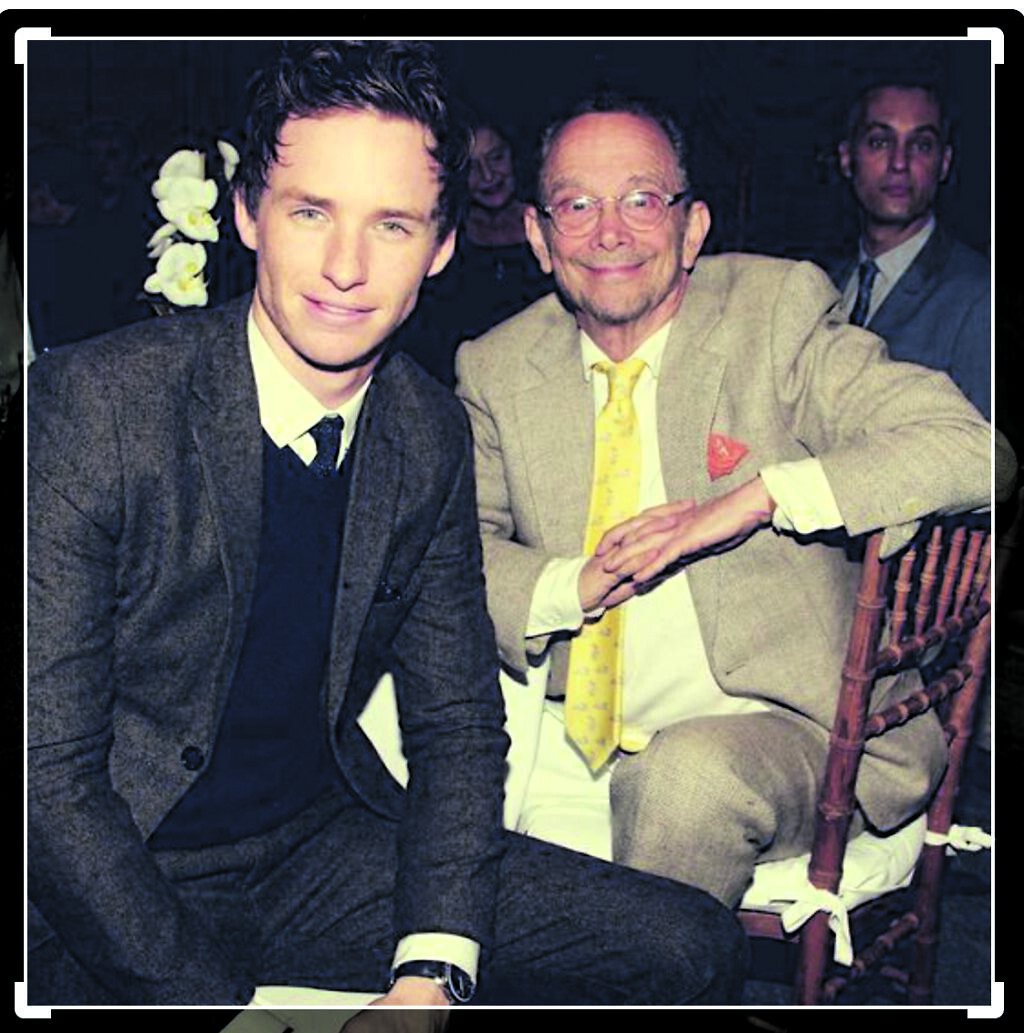
Keen to have an “unfiltered take” on the Kit Kat Club’s enigmatic host, Eddie avoided rewatching the film while rehearsing Rebecca Frecknall’s acclaimed production, but he did after receiving rave reviews, only to realise again that “it’s a stunning and searing piece of work”.
With all the anticipation and ticket demand for Eddie’s Cabaret, the 50th anniversary of the film has gone unnoticed yet, in 1972, it soared past firm favourite The Godfather to win Best Film at the Oscars. It actually won eight of the 10 categories for which it was nominated but, while The Godfather’s golden anniversary has been marked by a Netflix drama series, there has been barely a whistle blow for Cabaret.
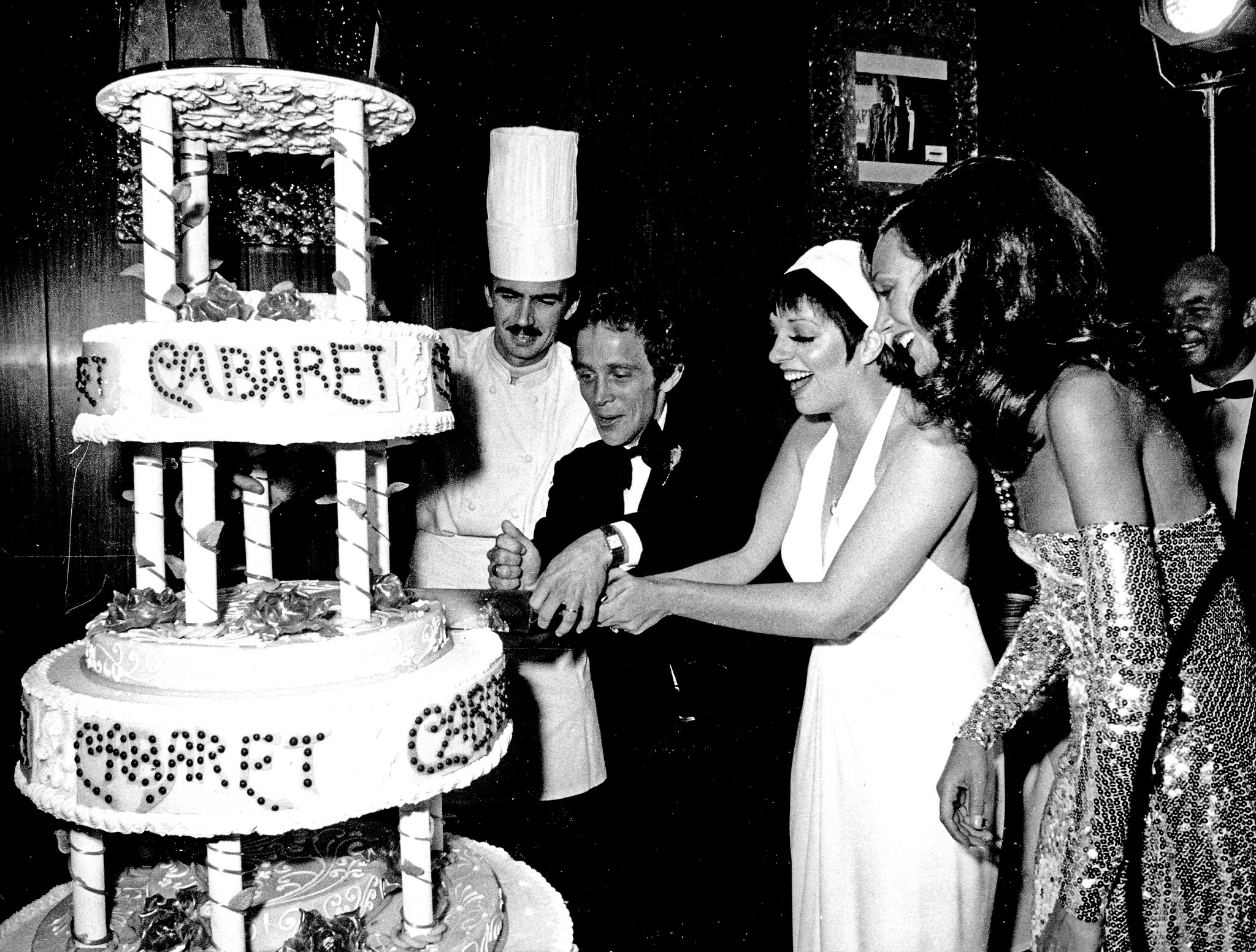
Joel doesn’t look too bothered about the paucity of fuss, as for him: “It’s just hard to believe we made the film 50 years ago. It feels like yesterday.”He asks me: “What did I find recently?” as if I might know. “I found photos of Liza Minnelli and me just playing on the road. Yes, it seems like yesterday.”
Liza had already been cast as cabaret diva Sally Bowles before director Bob Fosse came on board in 1971 after begging Jewish producer Cy Feuer for the job. But the love he felt for Fred Ebb and John Kander’s stage musical did not extend to Joel, who had created the role of master of ceremonies in Hal Prince’s 1966 Broadway production and appeared in 1,165 performances. Basing the Emcee on “the worst thing I’ve ever seen – a sweaty, tasteless performer I saw at a St Louis nightclub and never forgot,” Joel also created the look of the man.“I found a make-up that was like a marionette, sort of feminine and sort of masculine. Lipstick with a little manly beard on his chin.”
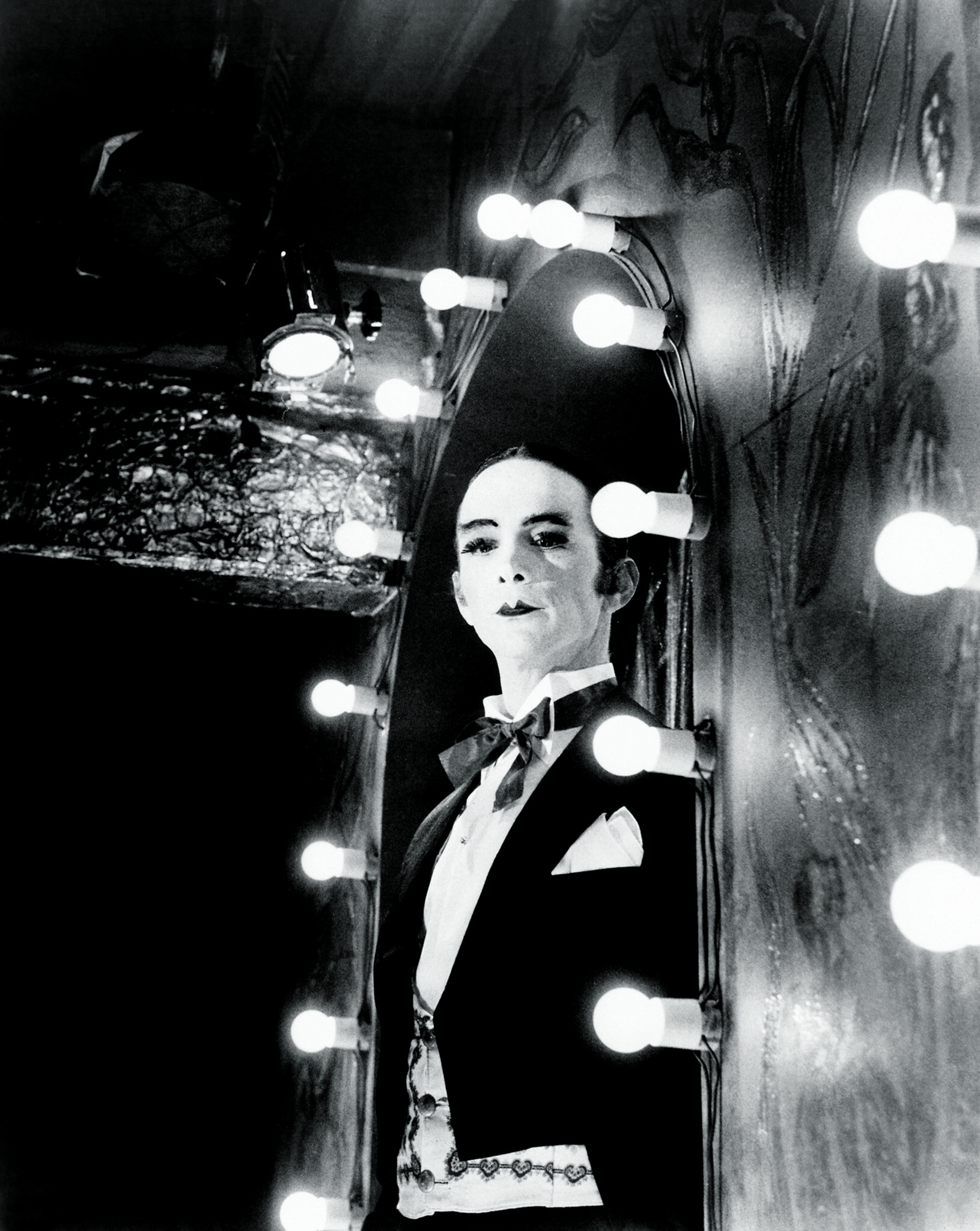
Now iconic, the image and Joel’s talent earned him a Tony, but there was no approach from Fosse to be in the film. “No, he approached everyone else,” chuckles the actor from his luxury Manhattan apartment. “But the producers wouldn’t have it and insisted it was me. They gave him only one option. Me. Or he could… Let’s just say I went into it without his blessing.
We never really figured out what it was that he was resistant about. Except that I think maybe he wanted to play the part.”
Joel was born in Cleveland, Ohio, the son of Goldie Epstein and Mickey Katz and started his career in children’s theatre, performing with his clarinettist father, who played Yiddish versions of pop songs.
This early introduction to Yiddish and the fact that Joel directed the hit Yiddish-language production of Fiddler on the Roof in New York suggests fluency of the lingo, but that’s not the case. “Not at all. I wish I was because I think it’s a rich and wonderful language. I’m very comfortable with Yiddish, but don’t use it on a daily basis.”
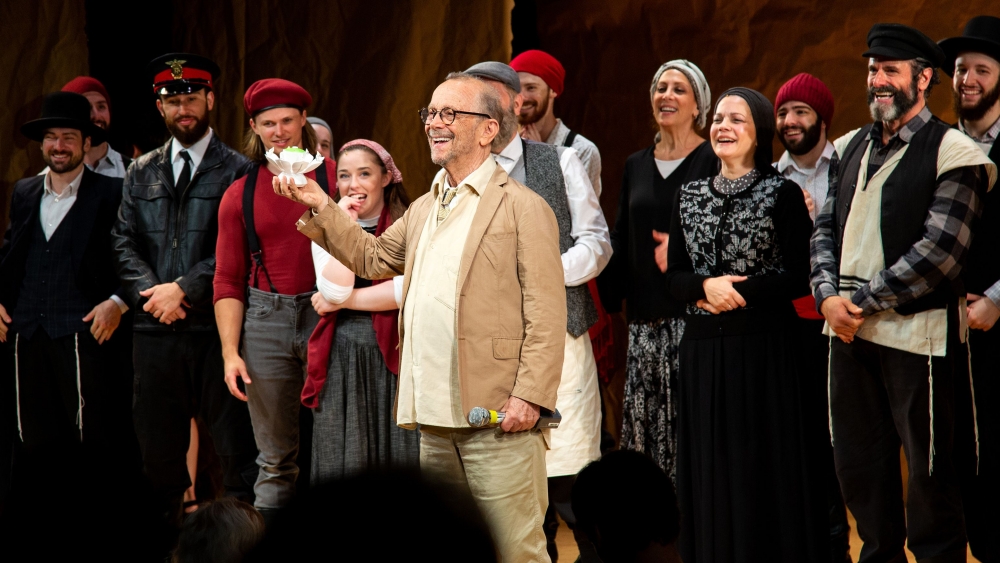
With a rise in antisemitic hate crimes in heavily Jewish populated New York, defacing a poster for a Yiddish show would seem likely, but Joel says not.“No! What we got was just a tremendous amount of love and acclaim about hearing the language and knowing the history. Going through all that made audiences rethink.”
Set in Berlin in 1931 as the Weimar Republic was coming to an end, Cabaret also makes audiences aware of the history, and the film achieved this on a wider scale with its jarring cutaways of horrific hate crimes against Jews and communists.
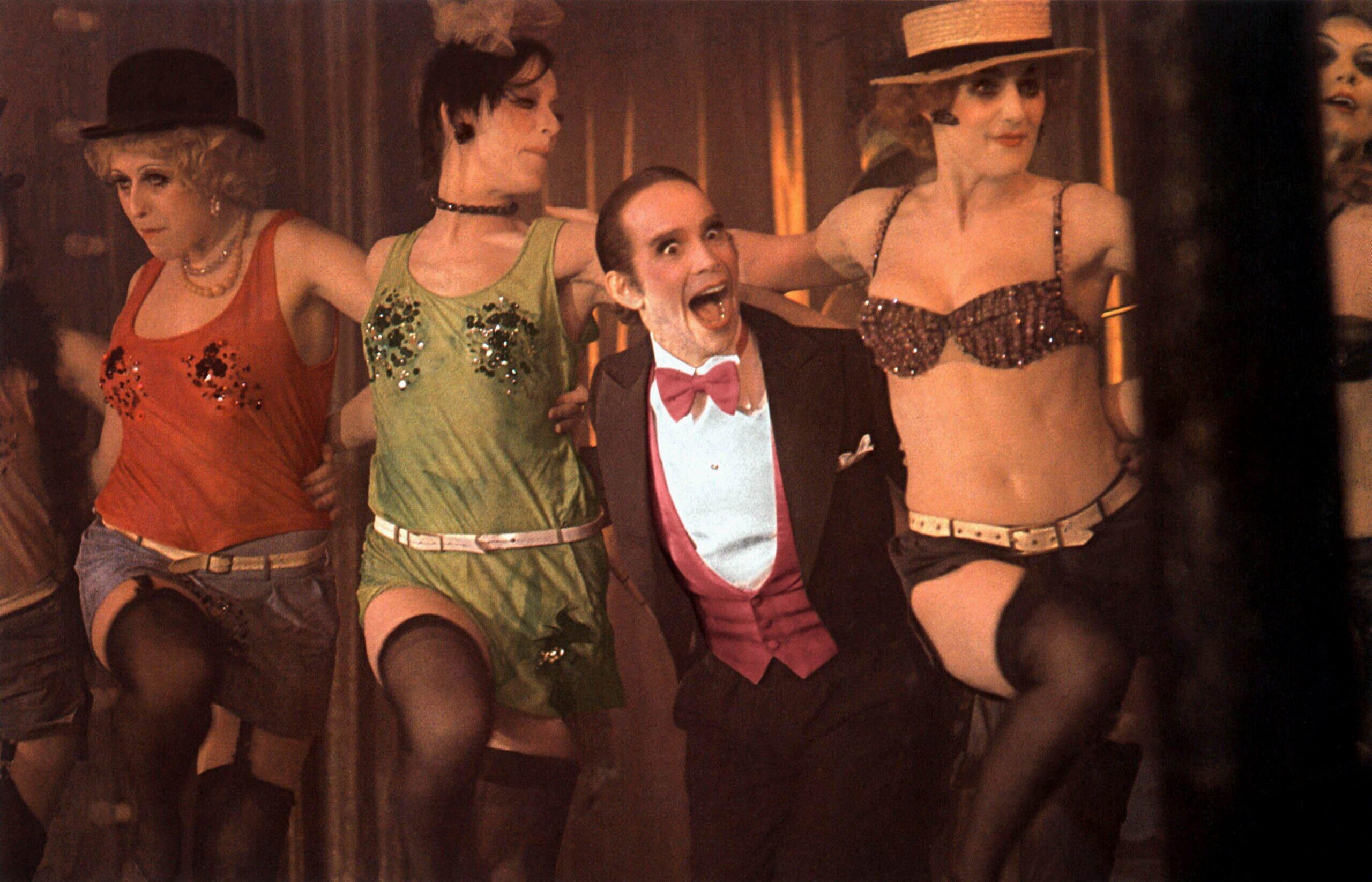
For authenticity, Fosse wanted the film to be shot in Germany, so the actors and ultimately the viewers could experience the locations mentioned in Christopher Isherwood’s semi-autobiographical book, The Berlin Stories, upon which the show and the film are based. That Isherwood’s arrival in Berlin coincided with the Nazi party gaining political traction was not lost on Joel, who arrived to make a film there only 23 years after the war had ended.
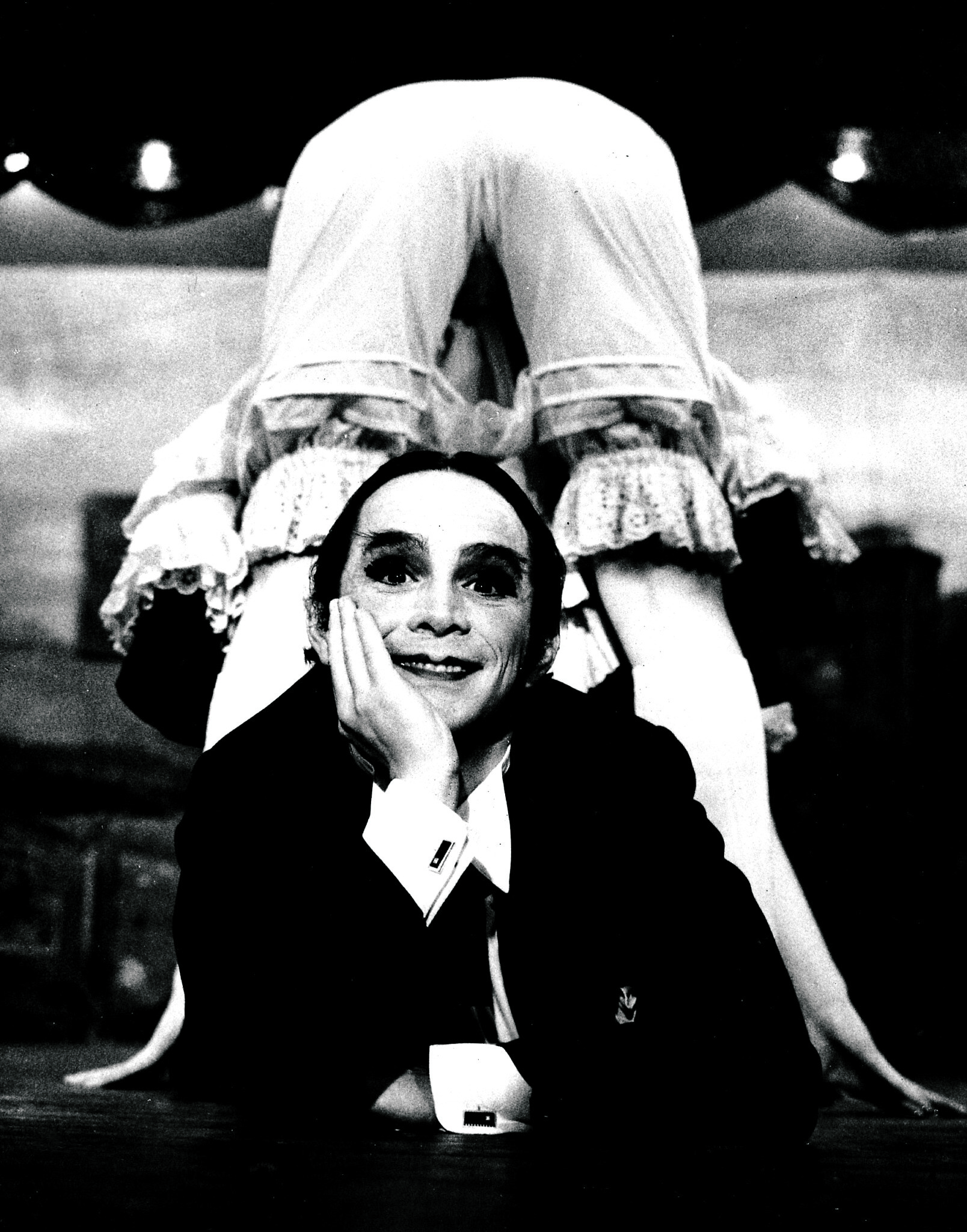
“I was born in 1932, so I only knew about the history, pain, misery and sadness of what the Holocaust was and what the world was like by being told. I went to visit Dachau and it was devastating. But it put the right thing in my mind. And my idea for the Emcee was to make him so horrible that he would be a lesson of what to stay away from.”
In the film, as in the show, the Emcee entertains an audience of burgeoning bigots at the Kit Kat Club with the affectionate ‘If They Could See Her Through My Eyes’ which he sings to a fellow performer who is dressed as an ape. Ending the song with the excruciating line:
“She wouldn’t look Jewish at all”, it is repellent for an informed viewer. “It was cut after I first did it on stage because there were people who misunderstood it,” says Joel. “They thought it was literal, but it wasn’t. So I was told not to do it, but I would let it slip out all the time. Naughty boy!”
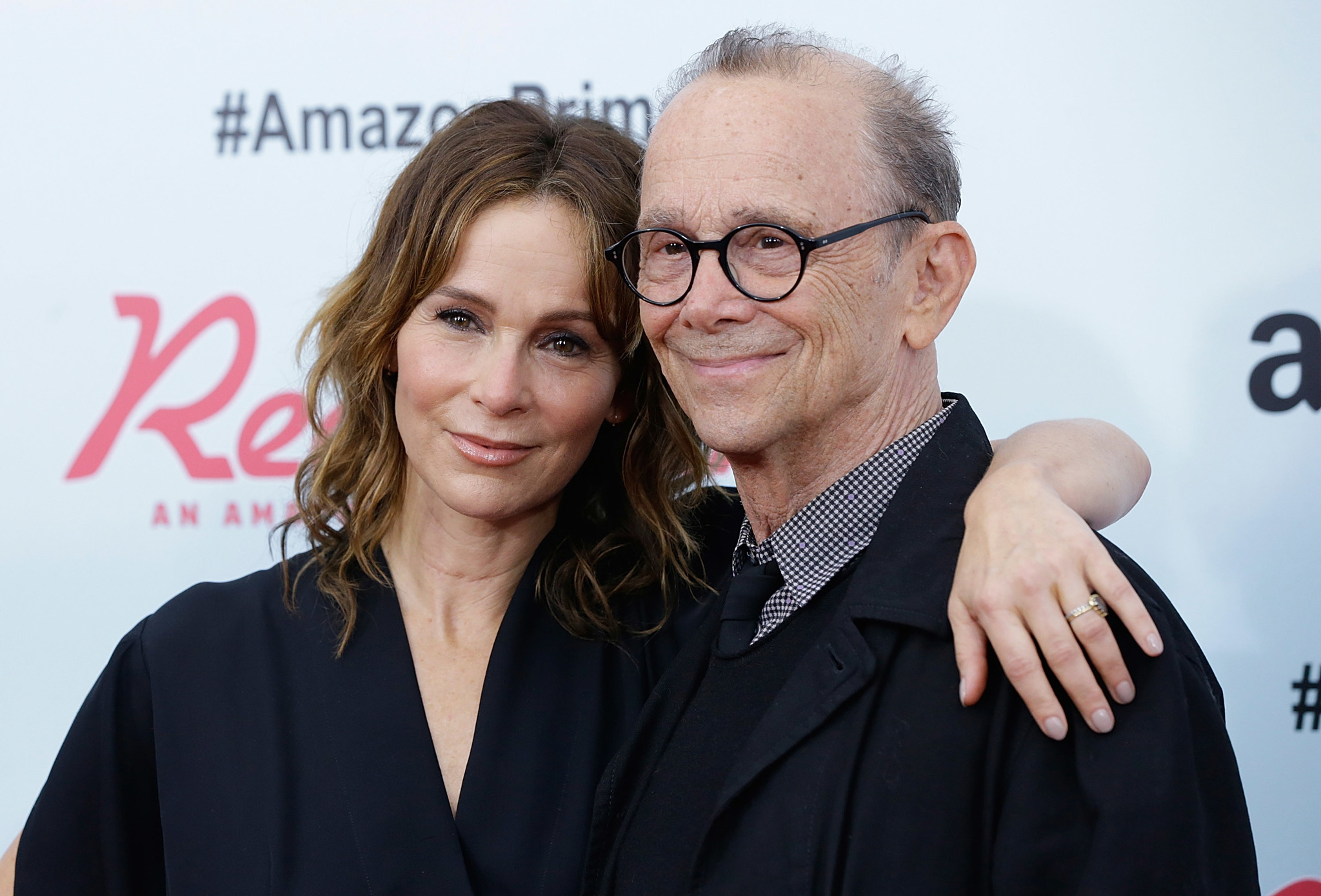
Joel married Jo Wilder in 1958, had two children – Jennifer of Dirty Dancing fame and James, who is a chef – then came out as gay, 33 years after his divorce. By then, the actor was 82 and perfectly comfortable telling People magazine that his family and friends had known about his sexuality and that he didn’t like labels. In his memoir, Master
of Ceremonies, he also recalls hearing adults discussing gay men being jailed for their sexuality just as he was realising his own.
As the star of a film that boldly tackled polyamory, bisexuality and gender fluidity at a time when other movies didn’t dare, it was an opportunity to come out – but it was too soon. Same-sex relations have only been legal nationwide in the US since 2003, so his reluctance to identify was understandable. Now Joel can fearlessly wave a flag at an LGBTQ+ parade, but has not been seconded as a spokesperson.
“Alas, no.There are so many people willing to talk about it.” Life for the diminutive octogenarian hasn’t really changed. “I’m the same guy,” he smiles. Bob Fosse didn’t like that guy and the feeling was mutual, as Joel describes working with him as a “horrible uphill struggle”, but acknowledges the finished film’s brilliance.
The friendships honed on set with co-stars Liza, Michael York and Marisa Berenson remain to this day, but Joel did not want – “not for a second” – to work with Fosse again. There is no hint of this discord in Cabaret, as Joel gets maximum screen time and a distorted image of his powdered face opens the film. Fosse won the Best Director Oscar for Cabaret and Joel got Best Supporting Actor, and did so over Al Pacino’s legendary Michael Corleone in The Godfather. He doesn’t need a big 50th anniversary party to remember that!
Face of the era, model Marisa Berenson was the Jewish beauty in the 1972 film – and discovered the missing half of her story
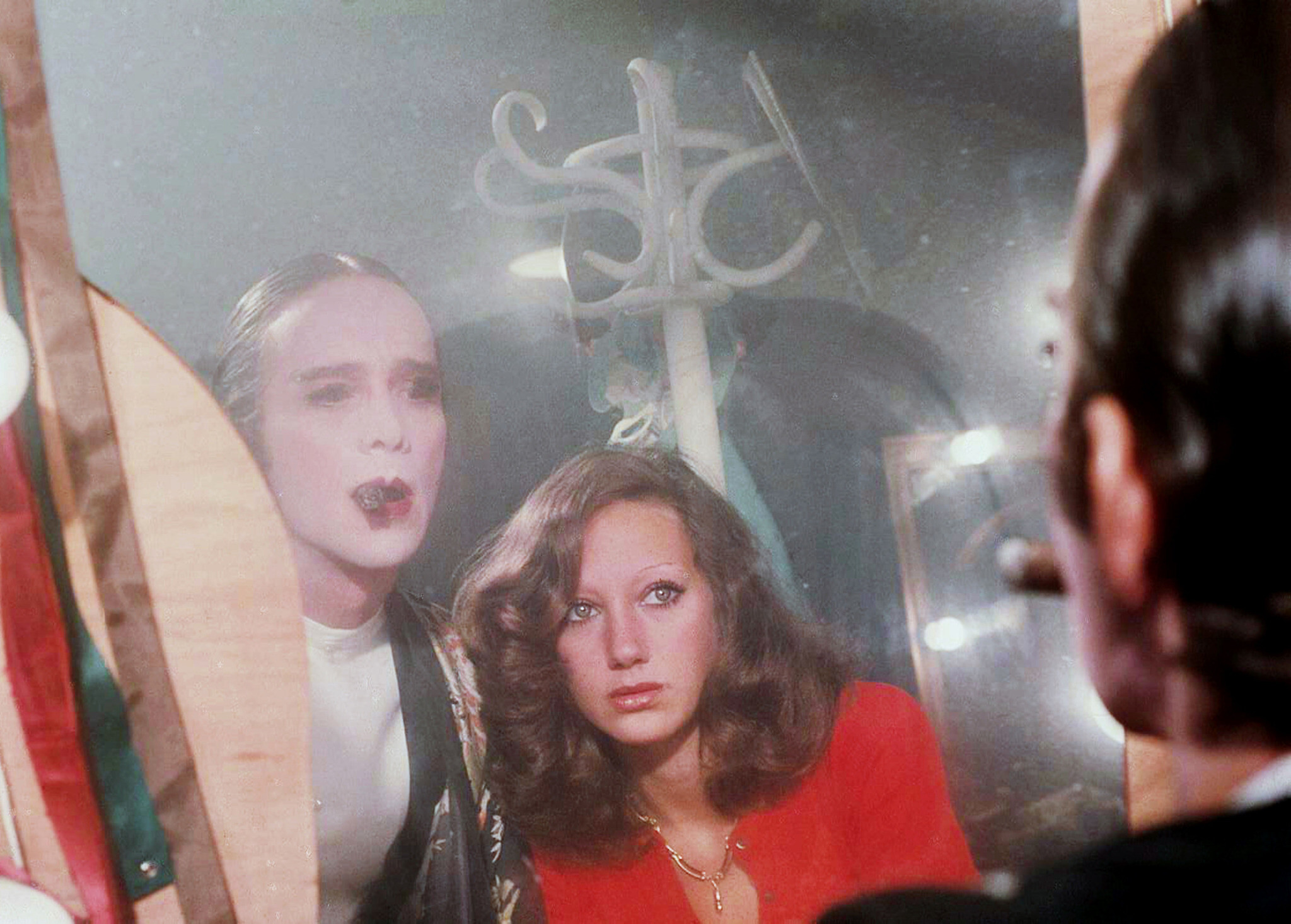
“Don’t you see what is happening in Germany today? I am a Jew and you are not.” These are the lines Marisa Berenson delivers as Jewish heiress Fraulein Natalia Landauer in Cabaret. One of many memorable scenes, Natalia’s words to her would-be Protestant suitor Fritz remind us she will only marry another Jew and what that means within the antisemitic totalitarian future facing Germany. With tears of fear in her eyes, the beautiful woman drives away.
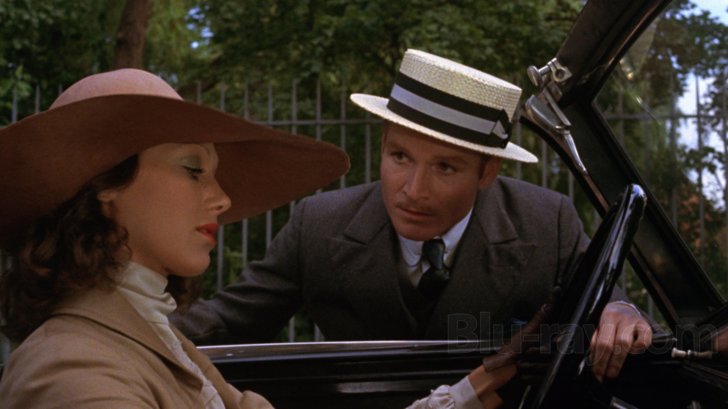
Just 24 when Cabaret went into production, Marisa Berenson had already been chosen as the face of the era by Yves Saint Laurent, and her distinguished European aristocratic heritage led her to socialise with the likes of Salvador Dalí, a fellow collaborator and friend of her grandmother, designer Elsa Schiaparelli, and meet Vogue editor Diana Vreeland, who coaxed her into modelling. Her extraordinary CV of life experiences also includes childhood dance lessons with Gene Kelly, a portrait sitting request from Greta Garbo and a huge portfolio of shots by David Bailey, Herb Ritts and Richard Avedon.
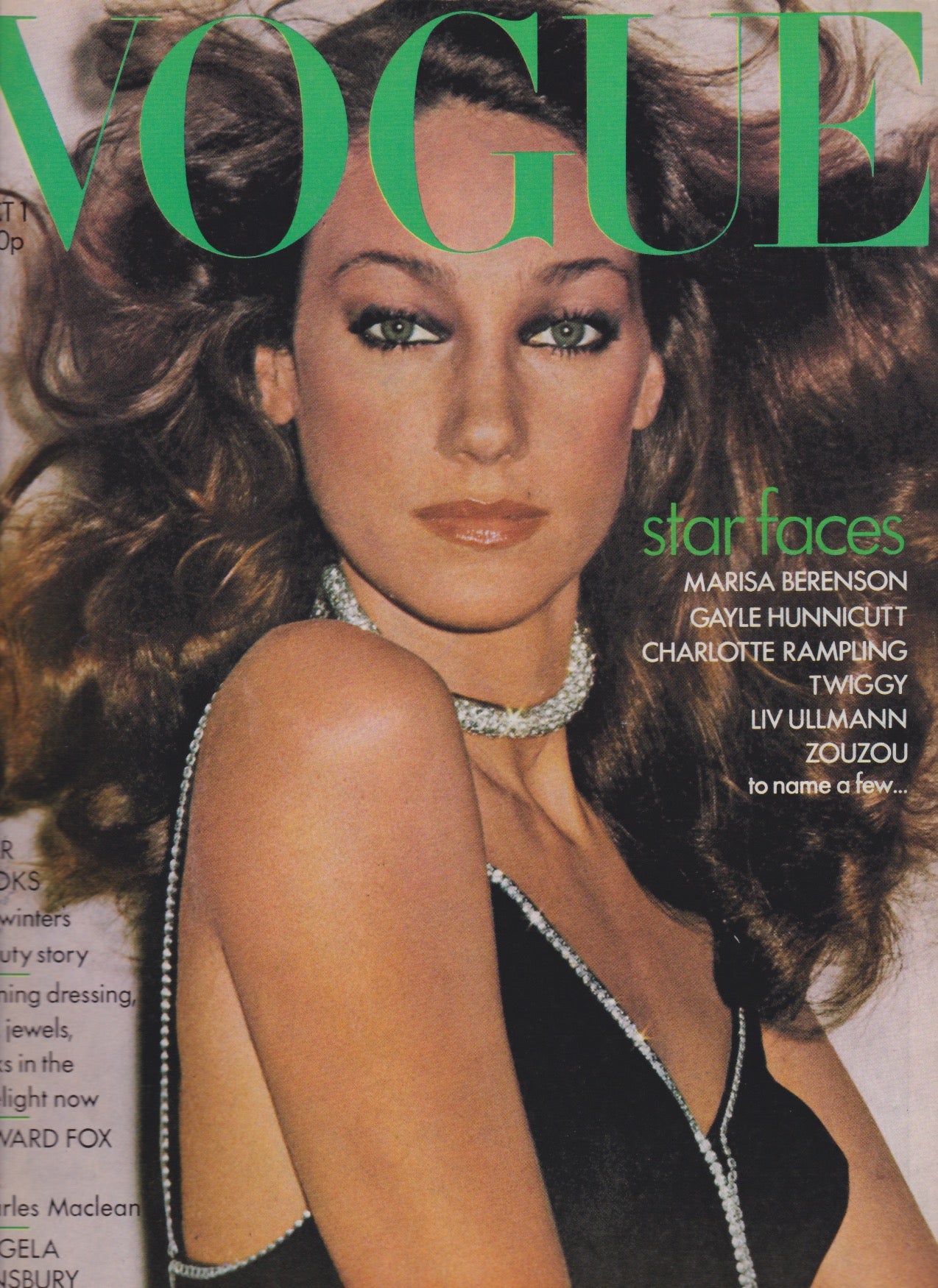
In each of them she looks exquisitely patrician and not the obvious choice for the role of a Jewish woman. But this was the 70s, when Hollywood was even more resistant than it is now to cast typically Ashkenazi-looking women in Jewish parts. It was Marisa’s elegant profile that Luchino Visconti wanted for Death in Venice and Bob Fosse sought her out to audition for refined Jewess Natalia. Ironically in today’s world of like-for-like casting Fosse scored, because Marisa is Jewish.
“I’m half-Jewish, but didn’t discover this until I was 17,” says the actress, model and muse from her stunning home in Marrakech. “My mother [Gogo Schiaparelli] told me I was Jewish, but she was Catholic and I was raised as one, but then learned my father, Robert, was of Lithuanian Jewish descent and the family’s original surname was Valvrojenski.”
Orthodox in Lithuania, the Berensons were secular after reaching America and eventually abandoned their faith for Christian options. Marisa wishes she’d known more. “My father died when I was 16, so I never had the chance to talk to him about it. But being half-Jewish made playing Natalia very interesting because the part helped me discover that part of me. I realised what Jewish people went through and how traumatising it
was to be Jewish during the war.
“But I’ve never understood why Jewish people are so stigmatised. I’ve read loads about it and know the history of antisemitism goes back to before Christ. But I don’t really understand why.”Being in Germany for the making of Cabaret left a lasting impression on cast and crew. “The atmosphere of being in Berlin behind that wall separating west and east was incredible.”
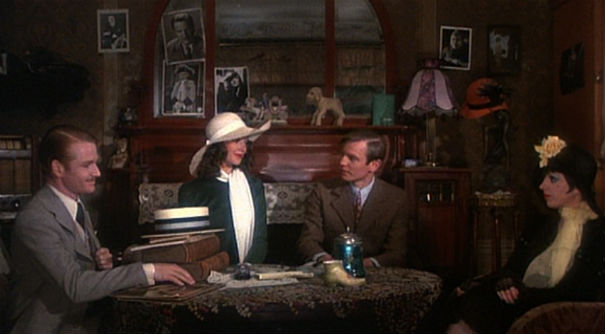
Marisa also got to understand Bob as a director, as they had met briefly at her screen test, “which was very scary” and now he was stressed about sharing the same studio as Willy Wonka and the Chocolate Factory, which might run over and delay Cabaret’s shooting schedule.
“When we were on set I was trembling so badly Bob asked me why my hat was shaking,” recalls Marisa. “It was only my second movie, I was very young and I had to learn to speak English with a German accent [she speaks five languages]. It was terrible. Fosse was a fantastic director, but he didn’t make it easy for actors. But by the end, we became really close friends.”
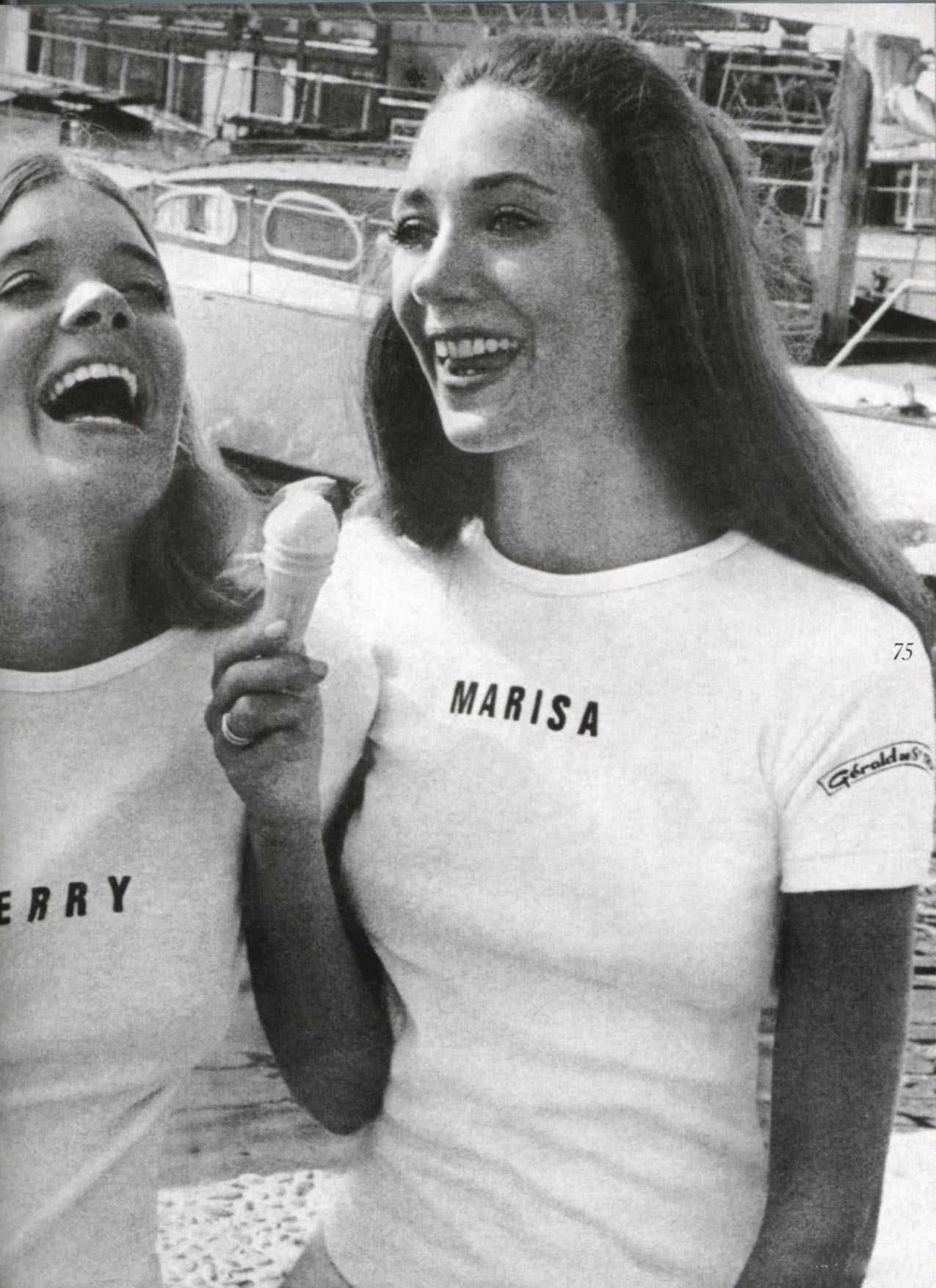
Beating Gwyneth Paltrow to the trend for living well and meditating , Marisa only looks a few years shy of her screen self in 1975 when she was Lady Lyndon in Stanley Kubrick’s Barry Lyndon. But maintenance and fitness are less important to her than her spiritual practice, which she started when she was 17 and relied on to help her through the death of her sister, Berry, who died on the American Airlines flight 11 that hit the World Trade Centre on 9/11.
“We were very close and I loved her very much,” says Marisa, who was also on a flight that day that diverted to Newfoundland.“Spirituality gives you strength for forgiveness and that’s important because if you hold on to negativity it makes you bitter and miserable.” Marisa exudes peace, which she attributes to living in Marrakech, the focus of her latest book, Marrakech Flair. Still in demand, she was Lady Capulet in Kenneth Branagh’s Romeo and Juliet in 2016 and has made at least three French films in the past year.
But it was in Paris in 2018 that she got to salute the 50th anniversary of Cabaret – fittingly, as the mistress of Berlin Kabarett in a 1930s burlesque show that echoed the Kit Kat Club.“I got to sing and dance, which I always wanted to do,” says Marisa, who never got that chance in Cabaret, but she did get a Golden Globe nomination and reclaimed the missing half of her story.

Thank you for helping to make Jewish News the leading source of news and opinion for the UK Jewish community. Today we're asking for your invaluable help to continue putting our community first in everything we do.
For as little as £5 a month you can help sustain the vital work we do in celebrating and standing up for Jewish life in Britain.
Jewish News holds our community together and keeps us connected. Like a synagogue, it’s where people turn to feel part of something bigger. It also proudly shows the rest of Britain the vibrancy and rich culture of modern Jewish life.
You can make a quick and easy one-off or monthly contribution of £5, £10, £20 or any other sum you’re comfortable with.
100% of your donation will help us continue celebrating our community, in all its dynamic diversity...
Engaging
Being a community platform means so much more than producing a newspaper and website. One of our proudest roles is media partnering with our invaluable charities to amplify the outstanding work they do to help us all.
Celebrating
There’s no shortage of oys in the world but Jewish News takes every opportunity to celebrate the joys too, through projects like Night of Heroes, 40 Under 40 and other compelling countdowns that make the community kvell with pride.
Pioneering
In the first collaboration between media outlets from different faiths, Jewish News worked with British Muslim TV and Church Times to produce a list of young activists leading the way on interfaith understanding.
Campaigning
Royal Mail issued a stamp honouring Holocaust hero Sir Nicholas Winton after a Jewish News campaign attracted more than 100,000 backers. Jewish Newsalso produces special editions of the paper highlighting pressing issues including mental health and Holocaust remembrance.
Easy access
In an age when news is readily accessible, Jewish News provides high-quality content free online and offline, removing any financial barriers to connecting people.
Voice of our community to wider society
The Jewish News team regularly appears on TV, radio and on the pages of the national press to comment on stories about the Jewish community. Easy access to the paper on the streets of London also means Jewish News provides an invaluable window into the community for the country at large.
We hope you agree all this is worth preserving.
-
By Brigit Grant
-
By Laurent Vaughan - Senior Associate (Bishop & Sewell Solicitors)
-
By Laurent Vaughan - Senior Associate (Bishop & Sewell Solicitors)
-
By Laurent Vaughan - Senior Associate (Bishop & Sewell Solicitors)
-
By Laurent Vaughan - Senior Associate (Bishop & Sewell Solicitors)


